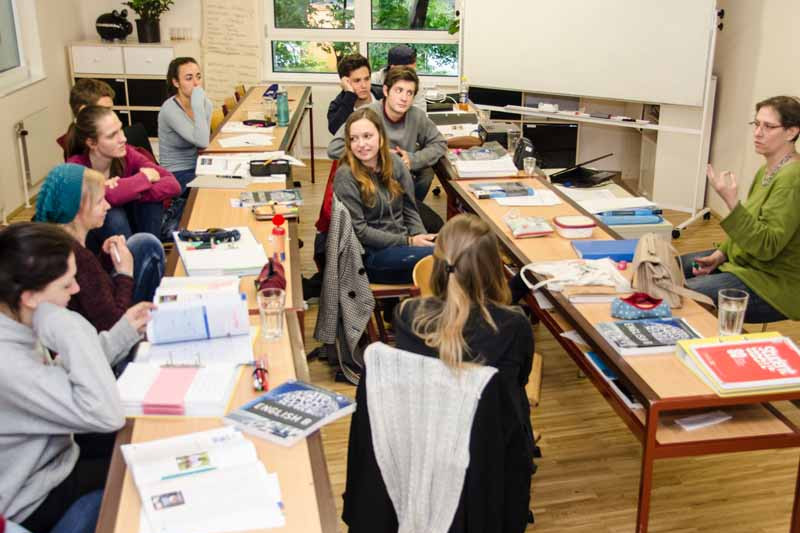“Where Teaching and Learning are Valued” - First Joint IB Dipolma from Waldorf and Montessori Students in Vienna

Schools with an alternative pedagogical approach that want to guide students through to the end of secondary school often face an unusual challenge. In the lower and middle grades, reform schools have a great deal of freedom and can offer students an education with the same value as mainstream schools, but a very different form. This can be a Waldorf approach, with equal emphasis on cognitive development, craftsmanship, and the arts; or a Montessori school with an emphasis on self-directed learning and learning in projects, as in, for example, the very successful Evangelische Schule Berlin Zentrum. As students approach secondary school graduation, however, they often find themselves once again in a traditional classroom setting with lecture instruction and a rigid and prescribed curriculum. Often, little remains of the original “alternative to school.” So although students on an alternative educational path perform very well academically - studies show that Waldorf students achieve very good results in their graduation exams, and a PISA study of Waldorf schools in Austria points in the same direction - a desire remains to be able to create an alternative form of secondary school, as well.
Now, the Freie Waldorfschule Wien West and the Montessori Campus Wien have found a new way forward. In 2009 and 2010, both schools began to develop a secondary school, and both schools were searching for a graduation degree that would be a strong fit with the respective reform education methods. “We both stumbled, independently, on the International Baccalaureate diploma,” explains educator Jutta Zopf-Klasek. “It was clear to both schools that we wanted and needed a cooperation partner for this great adventure.” So together the schools founded the Campus Wien West to create a path for the students of both schools and that could also be attractive for prospective students from other school forms.
But why the IB degree, and not, for example, the Austrian Matura degree? “We wanted an internationally recognized degree for our students - a factor that is very fitting for Waldorf and Montessori, which are both internationally recognized educational methods,” explains educator Martina Bauer. In the IB diploma, the educators found a concept of the person that allowed for a complete and holistic view of learners and teachers, and that both promotes and demands independent, reflective, critical and network thinking. At the same time, it was an opportunity to integrate Waldorf and Montessori elements into the school day. The fact that the IB prepares students for university studies made the decision easy in the end.
The first graduating class had very good results in the IB. According to Zopf-Klasek, this also has a lot to do with the appreciative atmosphere that is oriented towards developing a culture of teaching and learning. Also important is a willingness to accept supportive, constructive feedback. “Teachers are to be seen as knowledge experts and coaches,” says Zopf-Klasek. Lessons are designed to allow intellectual freedom without the need to abandon one's own point of view. Asking questions is seen as a strength, and the students are respected as individuals with their own personal requirements. “It's important to us that we challenge students without exhausting them, and support them without 'serving' them,” said the IB coordinator in describing the school. The approach can also be a model for other schools. But it requires clarity, a willingness to compromise and a desire to develop joint projects together. In particular in the planning, founding and certification phases, it was crucial to respect the differences between the two pedagogical approaches and to design the challenging process of growing together.
“We were very pleased to support and supervise the innovative path that these two reform schools have taken,” said Professor Dirk Randoll, Project Manager at the Software AG Foundation. The success of the first graduating class as well as the exceptionally positive feedback of the International Baccalaureate Organization (IBO) during the certification process demonstrate the exceptional quality of the educational work. The school can be an example for others both in terms of remaining true to a pedagogical concept while continuing to develop, and in terms of providing students with the best possible qualification for training, university studies, and adult life.
